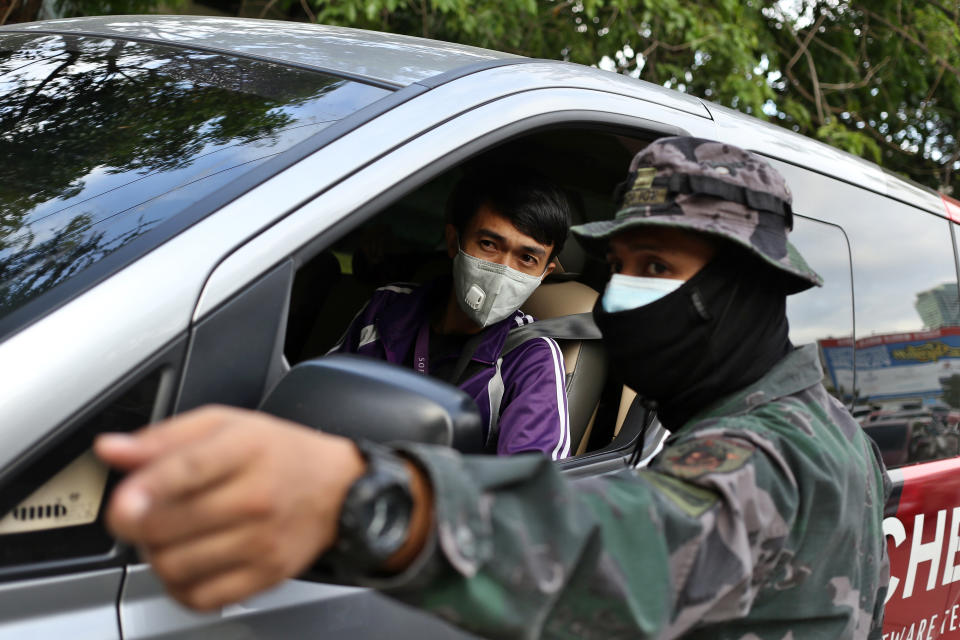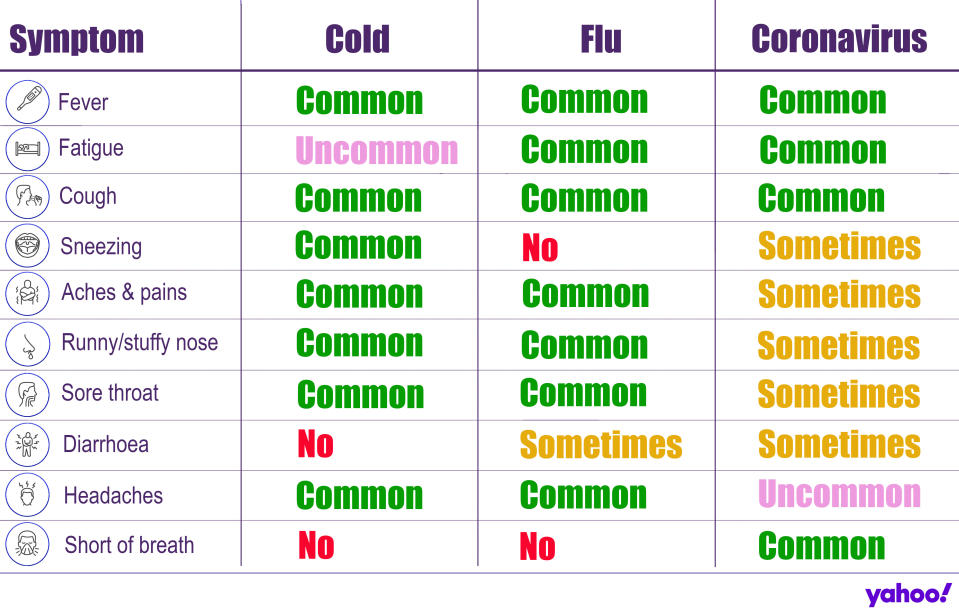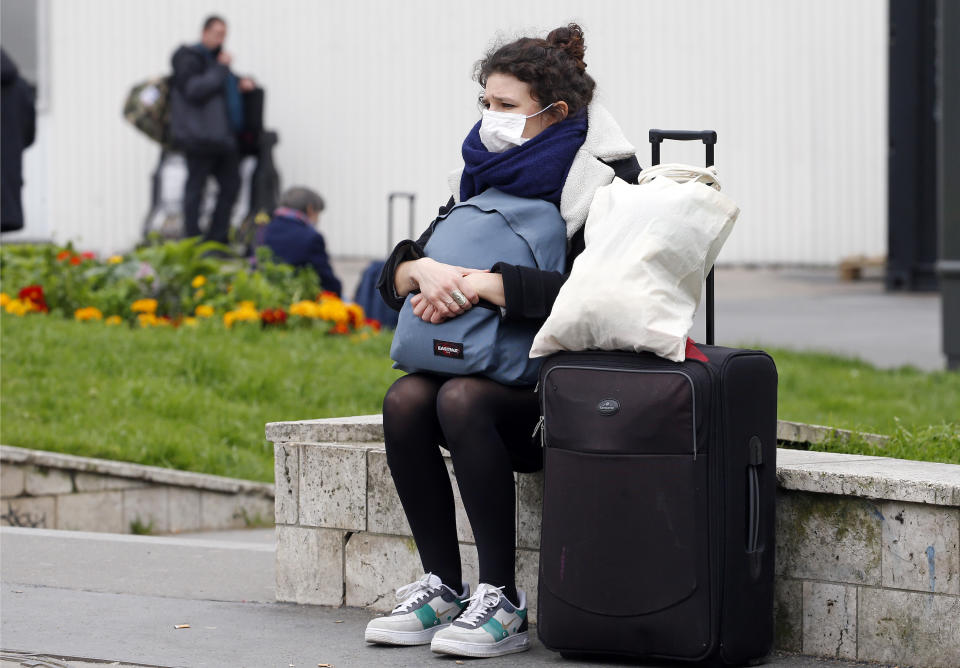Coronavirus myths debunked by the World Health Organization

The World Health Organization (WHO) has debunked some of the misleading myths surrounding the coronavirus outbreak.
The previously-unknown Covid-19 virus is thought to have emerged at a seafood and live animal market in the Chinese city Wuhan at the end of last year.
It has since spread internationally, with more than 190,000 confirmed cases worldwide since the outbreak was identified, according to John Hopkins University data.
While officials are urging the public to wash their hands regularly and maintain social distancing, the internet is awash with false information about how to stay virus-free.
The WHO has debunked the most widespread, and ludicrous claims, in an attempt to combat the outbreak sooner.
Latest coronavirus news, updates and advice
Live: Follow all the latest updates from the UK and around the world
Fact-checker: The number of Covid-19 cases in your local area
Explained: Symptoms, latest advice and how it compares to the flu
Globally, the death toll has exceeded 7,000.
While this is alarming, more than 80,600 of the 190,000 confirmed patients are known to have “recovered”.
China, where the outbreak began, has seen cases plateauing since the end of February.
Europe is now the epicentre of the pandemic, with Italy alone having more than 27,900 confirmed cases and over 2,000 deaths.

Coronavirus myths debunked by the World Health Organization
‘Cold temperatures kill the coronavirus’
“There is no reason to believe cold weather can kill the new coronavirus”, according to the WHO.
The Covid-19 virus is one of seven strains of the coronavirus class that are known to infect the airways of humans.
A human’s body temperature remains around 36.5°C to 37°C (97.7°F to 98.6°F) regardless of the conditions outside.
Although unclear, some experts wonder whether cold weather could actually be making the outbreak worse, with it potentially easing as temperatures warm up.
Flu may be more prevalent in the northern hemisphere’s winter due to the cold weather driving people to “huddle” indoors.
There is also evidence the norovirus (winter vomiting bug) may break down more readily when exposed to higher levels of UV light.
The Covid-19 virus has been identified in more than 150 countries across every inhabited continent, highlighting how the pathogen can seemingly survive in any climate.
‘Taking a hot bath prevents the coronavirus’
The WHO warns a hot bath or shower will not protect against the coronavirus and could result in dangerous burns.
Regular hand washing and social distancing are the key methods of prevention.
‘Mosquitoes spread the coronavirus’
Unlike malaria, there is no evidence mosquitoes transmit the coronavirus.
The virus enters the body if a person inhales infected droplets that have been expelled by a patient when they cough or sneeze.
Rubbing the eyes, nose or mouth with contaminated hands is also a known route of infection.
When it comes to animals in general, most of those who initially became unwell worked at or visited the market in Wuhan.
Although unclear, research suggests the virus may have started in bats and “jumped” into humans, possibly via snakes or pangolins.
Officials confirmed early in the outbreak the strain spreads from person-to-person, which has been responsible for the vast majority of cases.
A dog in Hong Kong “tested positive” for the coronavirus, with experts expecting it picked up traces of the virus from its owner.
They stressed there is “no evidence pet animals can be a source of infection”.

‘Hand dryers kill the coronavirus’
“Hand dryers are not effective in killing the [Covid-19 virus]”, according to the WHO.
Hand washing should be the go-to to staying virus free, with the public urged to scrub for 20 seconds – around the time it takes to sing Happy Birthday twice.
Drying hands is also an important step.
Writing in The Conversation, scientists from Swansea University said: “Hand drying not only removes moisture from the hands but it also involves friction, which further reduces the microbial load and the environmental transfer of microorganisms.”
Wet hands are also thought to transfer pathogens, like viruses, more readily.
Disposable hand towels are the most hygienic option, with dryers potentially dispersing the virus into the air.
The WHO adds “warm air dryers” are also acceptable.
While hand washing should be the go-to, sanitisers may be helpful when out and about, providing they contain at least 60% alcohol.
The Covid-19 virus is genetically similar to fellow coronaviruses severe acute respiratory syndrome (Sars) and Middle East respiratory syndrome (Mers).
Sars killed 774 people during its 2002/3 outbreak and Mers killed 858 people in 2012.
Both of these strains were destroyed when exposed to a high concentration of alcohol.
The WHO is also urging people not to spray themselves with alcohol or chlorine, which can harm the skin and eyes.
‘UV lamps kill the virus’
The WHO is urging people not to use ultraviolet (UV) lamps to “sterilise” their hands out of fears it will cause skin irritation.
UV rays are also known to cause skin cancer.
‘Rinsing the nose with saline water protects against the coronavirus’
“There is no evidence regularly rinsing the nose with saline has protected people from infection with the new coronavirus”, according to the WHO.
Limited evidence suggests the approach may speed up recovery from a common cold, but is not preventative against any virus.

‘Garlic wards off the coronavirus’
Garlic is a healthy kitchen-staple, with evidence suggesting it may be somewhat anti-microbial.
There is, however, “no evidence eating garlic has protected people from the new coronavirus”.
‘Antibiotics and other drugs treat the coronavirus’
Antibiotics are effective against certain bacteria, but will do nothing to relieve a viral infection, like the Covid-19 virus.
Coronaviruses have no “set” treatment.
While most patients with the Covid-19 virus experience mild symptoms, those requiring hospitalisation may be offered “supportive care”, like ventilation.
This supports the patient while their immune system works to fight off the virus naturally.
The Covid-19 virus has no vaccine, with a jab and other treatments under development.
The WHO is looking to accelerate this research.
‘Thermal scanners detect the virus’
With fever a tell-tale symptom, many airports long introduced scanners to read travellers’ temperatures.
This is somewhat effective, however, it is thought to take several days for this warning sign to appear.




